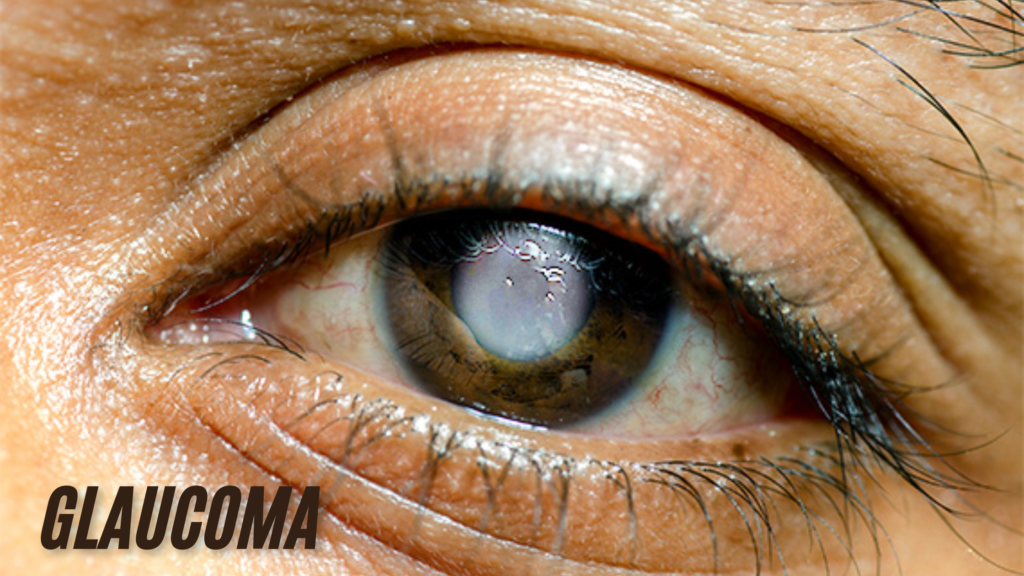👁️ Glaucoma – Overview
Glaucoma is a group of eye diseases that damage the optic nerve, often caused by increased pressure inside the eye (intraocular pressure). It can lead to gradual vision loss and blindness if untreated.
⚙️ Types of Glaucoma
| Type | Description |
|---|---|
| Open-angle glaucoma | Most common type; slow clogging of drainage canals, gradual pressure increase |
| Angle-closure glaucoma | Sudden blockage of drainage canals; rapid pressure rise; medical emergency |
| Normal-tension glaucoma | Optic nerve damage despite normal eye pressure |
| Secondary glaucoma | Due to injury, inflammation, steroid use, or other eye conditions |
📋 Symptoms
- Open-angle glaucoma:
- Often no symptoms early (called the “silent thief of sight”)
- Gradual loss of peripheral (side) vision
- Tunnel vision in advanced stages
- Angle-closure glaucoma:
- Sudden eye pain
- Headache
- Nausea and vomiting
- Blurred vision and halos around lights
- Red eye
🩺 Diagnosis
- Measuring intraocular pressure (tonometry)
- Examining the optic nerve (ophthalmoscopy)
- Visual field test to check for vision loss
- Gonioscopy to inspect the drainage angle
- Optical coherence tomography (OCT) to image optic nerve fibers
💊 Treatment
- Eye drops to lower eye pressure (e.g., prostaglandin analogs, beta-blockers)
- Oral medications if drops not enough
- Laser therapy to improve drainage
- Surgery to create new drainage pathways or reduce fluid production
⚠️ Complications
- Permanent vision loss if untreated
- Loss of peripheral vision leading to blindness
🛡️ Prevention
- Regular eye exams, especially if at risk (family history, older age, diabetes)
- Early detection and adherence to treatment
- Protect eyes from injury
